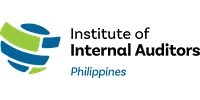Event Details
Focus and Features
This guidance assists internal auditors to understand common technologies that enable remote work, the significant risks arising from remote access, and standard controls that prevent, detect, or remediate unauthorized access or sharing of information.
Course Objectives
At the end of the Course, the participants shall be able to:
- Have an overview and understanding of mobile computing hardware, software, and communications tools.
- Understand components of remote access processes and related security controls.
- Understand the basics of auditing mobile computing, including specific controls to evaluate.
- Attain the appropriate competencies required by the IPPF and mapped with The IIA GCF
What You Will Learn
I. Overview and understanding of mobile computing hardware, software, and communications tools
Mobile Computing
- Virtual private network (VPN)
- Bring Your Own Device (BYOD)
- Internet of Things (IoT)
- Cloud
Purpose of Internal Audit Engagement
IT-IS Control Frameworks
- COBIT 2019 Framework: Governance and Management Objectives
- NIST Special Publication (SP) 800-53, Revision 5: Security and Privacy Controls for Information Systems and Organizations (NIST SP 800-53r5)
- CIS Controls Version 8
II. Understand components of remote access processes and related security controls.
Mobile Computing Control Groups
- Remote Access
- Centralized Device Administration
- Endpoint Security
- Data Protection
- Cybersecurity Monitoring
- Training
Auditing Mobile Computing
- Evaluation of Mobile Computing
- Audit Activity: use sample controls from IT – IS Frameworks and apply them in the review of mobile computing control groups




